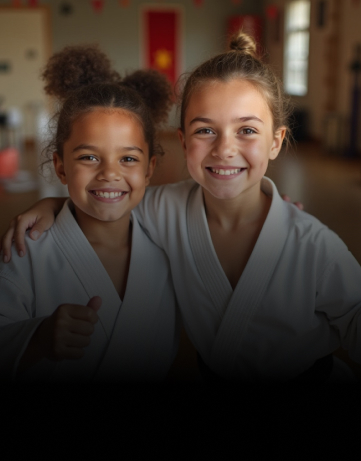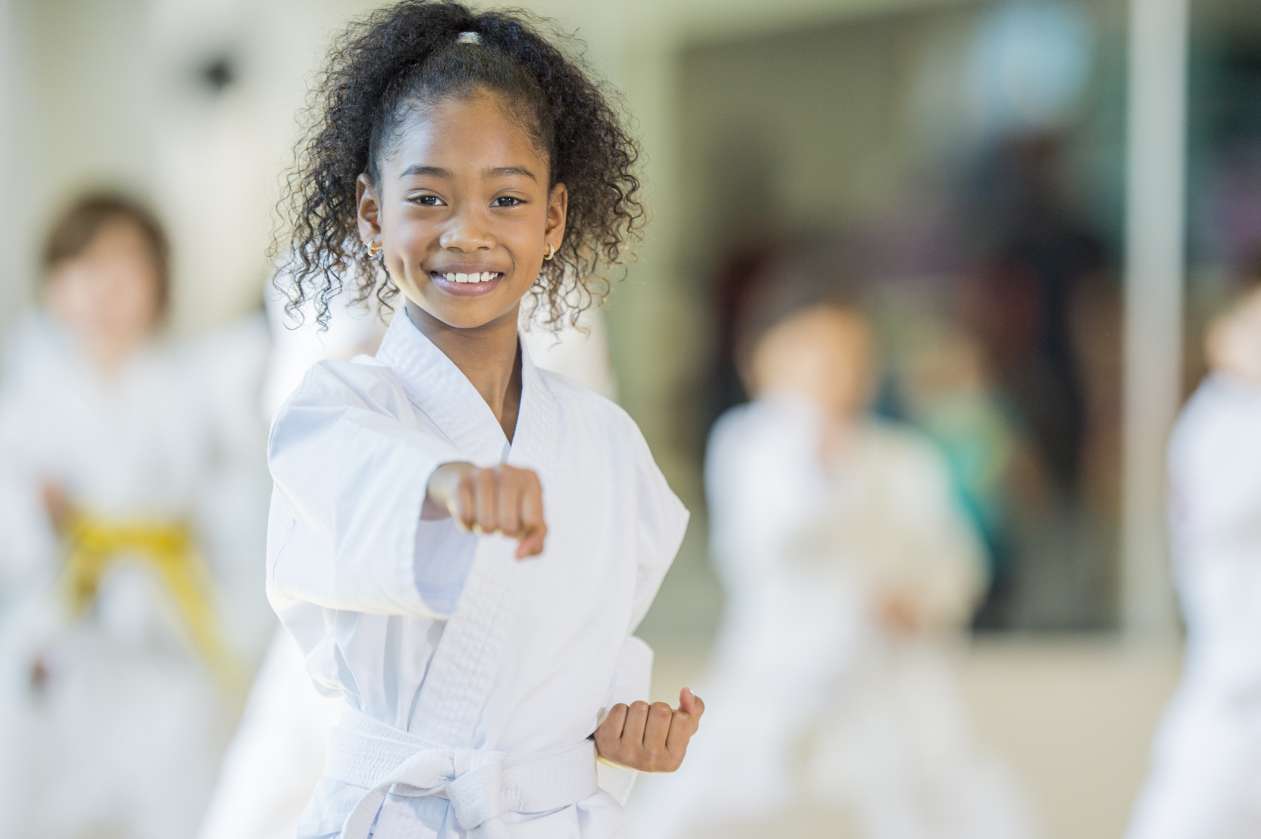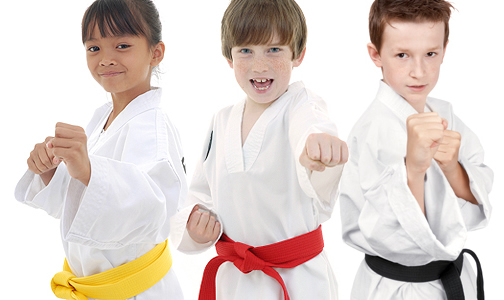Best Martial Arts for Families – Memorable Moments and Growth Together
Just How Karate for Children Can Increase Self-confidence and Technique in Youthful Martial Artists
Karate for children uses an one-of-a-kind opportunity to build confidence and technique in young martial artists. As they learn brand-new strategies and face obstacles, they not just obtain skills however additionally develop a strong sense of self-respect. This organized environment urges them to value the journey of enhancement. But how does this training equate right into their daily lives? Discover the deeper connections that make karate greater than just a sport.
The Value of Confidence in Youth Growth
Confidence is a necessary building block in childhood advancement. When you nurture your kid's self-esteem, you encourage them to encounter challenges, take threats, and express themselves freely. Kids with self-confidence are more ready to explore brand-new tasks and social scenarios, which can lead to long-term relationships and beneficial experiences.Encouraging your youngster to step out of their comfort area promotes resilience. They find out that failing isn't completion however instead a stepping stone to success. By commemorating their success, no matter how small, you aid them acknowledge their capabilities and worth.In this trip, assistance and favorable support from you play a crucial role. Whether it's through appreciation or merely being present, your participation increases their self-confidence. As they expand, this self-assurance ends up being a long-lasting asset, outfitting them to navigate both difficulties and possibilities with a solid feeling of self.
Just How Karate Shows Self-control and Focus
Martial arts assists you construct self-control and emphasis with its organized training regimen. As you practice mindfulness throughout each session, you'll find out to concentrate much better both on and off the mat. Plus, setting and accomplishing objectives in karate reinforces your capacity to remain attentive and committed.
Structured Training Regimen
While you take part in karate training, you'll rapidly discover how a structured routine instills technique and focus in young practitioners. Each class adheres to a details layout, consisting of warm-ups, strategy practice, and sparring. This consistency shows you to commit and value the process to improvement. As you discover techniques and kinds, you develop a feeling of responsibility for your own progress.The structured setting motivates you to set objectives, whether mastering a new belt or developing a kata. You'll discover that remaining concentrated during courses and drills develops your concentration. The self-control you cultivate in martial arts extends past the dojo, positively affecting your schoolwork and daily routines. Each session reinforces the relevance of dedication, helping you turn into a more disciplined person.
Mindfulness in Technique
As you practice karate, you'll find that mindfulness becomes a vital component of your training. Each relocation needs your complete focus, helping you stay concentrated on the here and now moment. You'll learn to disregard distractions and concentrate on your breathing, activities, and intents. This enhanced awareness develops your reflexes and improves your discipline.During sparring or kinds, you'll find the relevance of being emotionally present - Karate Salisbury MD. You'll notice just how this emphasis not only improves your technique but also develops your self-confidence. By practicing mindfulness in karate, you cultivate patience and strength, essential characteristics that expand past the dojo. In this means, karate teaches you to harness your mind, aiding you create a disciplined technique to challenges both on and off the floor covering

Setting Goal Techniques
Setting objectives in karate isn't nearly gaining belts; it's a powerful way to grow self-control and emphasis. When you establish details, attainable targets, you create a roadmap for your progress. Rather of simply intending to boost your kicks, attempt concentrating on grasping a particular technique each month. This technique maintains you determined and engaged.Breaking down larger goals into smaller sized, workable steps assists you track your progress and celebrate little success along the way. Whether it's improving your stance or increasing your sparring endurance, every goal enhances your dedication. As you accomplish these objectives, you'll build confidence in your skills and create a solid sense of self-control that expands beyond the dojo into everyday life.
Structure Durability Via Martial Arts
Fighting style, especially karate, offers kids an one-of-a-kind opportunity to construct resilience in an encouraging atmosphere. In courses, they deal with obstacles that push their limits, whether it's mastering a brand-new technique or competing with a partner. Each setback, like a missed kick or a lost suit, becomes a possibility to learn and grow.As they practice, children find out to embrace discomfort and keep attempting, also when things get difficult. They uncover that failure isn't the end; it's part of the trip. This state of mind aids them get better stronger, not just in the dojo, yet in day-to-day life.With each obstacle they get over, your youngster constructs self-confidence in their ability to deal with barriers, fueling their resolution. With karate, they'll recognize that resilience isn't simply concerning physical strength; it's about psychological grit and willpower, empowering them to deal with whatever life throws their means.
The Function of Respect in Martial Arts Training
Respect is a foundational principle in karate training, promoting a society of self-control and friendship amongst students. When you step onto the thursday night football tonight dojo flooring, you're not just learning techniques; you're description likewise finding out to appreciate your trainers, peers, and the art itself (Karate Salisbury MD). Bowing at the start and end of course isn't simply a formality; it represents your acknowledgment of others' dedication.as and efforts you develop shared regard, you'll find it enhances your discovering experience. You'll listen a lot more diligently to your instructor and gain understandings from fellow students. This setting motivates useful objection and support, permitting everybody to grow together.Moreover, regard cultivates self-control. Identifying the worth of effort and humbleness helps you stay concentrated on your training. Consequently, this respect converts right into your daily life, boosting your communications and connections outside the dojo. Via martial arts, you find out that respect is necessary for personal development and community structure
Setting Objectives and Accomplishing Success in Karate

Social Skills and Teamwork in the Dojo
While training in the dojo, children normally create crucial social abilities and team effort capacities. As they exercise together with peers, they discover to interact properly, share room, and assistance each other. Each class provides chances for collaboration, whether it's during partner drills or group exercises. This team effort cultivates friendships and produces a feeling of belonging, making the dojo a nurturing environment.Kids also get beneficial dispute resolution abilities. When they run into difficulties, such as disagreements throughout sparring, they learn to browse these circumstances constructively. They exercise patience and compassion, understanding that every person has various staminas and weaknesses.Moreover, taking part in group activities cultivates a feeling of responsibility. You'll see your child discovering to rely upon colleagues and take responsibility for important source their duty in a group. These experiences not just improve their martial arts trip but also outfit them with social devices they'll carry right into other locations of life.

The Long-Term Advantages of Martial Arts Beyond Childhood
As kids mature and shift right into their adult years, the benefits of karate expand much past the dojo. You'll discover that the discipline and emphasis learned through martial arts can convert into your professional and scholastic life. Establishing and attaining goals in martial arts fosters a solid job ethic, which can press you to excel in any type of endeavor.Moreover, the confidence obtained from competing and mastering techniques can boost your self-esteem, helping you deal with obstacles head-on. This resilience ends up being very useful as you face the uncertainties of adulthood.Additionally, the social skills established through teamwork and sociability in the dojo can cause much better partnerships in both expert and personal balls. You'll find out to connect efficiently, willpower conflicts, and construct an encouraging network.Ultimately, karate forms not simply experienced martial artists, however all-around people all set to take on the globe.
Regularly Asked Concerns
What Age Is Finest to Start Karate for Children?
You can start karate as very early as age four or 5, but it typically depends on your kid's maturity and interest. Finding a class that suits their age and energy degree makes a big distinction.
Are There Any Type Of Wellness Perks From Practicing Martial Arts?
Yes, exercising karate deals numerous health advantages. You'll enhance your coordination, toughness, and adaptability while increasing cardio health and fitness. And also, it improves emphasis and psychological well-being, making it a wonderful option for general physical and psychological wellness.
Just How Usually Should Kids Participate In Karate Courses?
You should motivate your youngsters to attend karate courses a minimum of 2 to three times a week. Uniformity assists them learn strategies successfully and create abilities, making their experience a lot more delightful and gratifying in the future.
Can Karate Aid With Managing Anxiousness in Children?
Yes, karate can aid manage anxiety in children. It teaches focus and self-constraint while giving a safe outlet for power. You'll notice your child expanding much more confident and tranquil as they exercise regularly.
What Gear Is Required for Children Starting Martial Arts?
